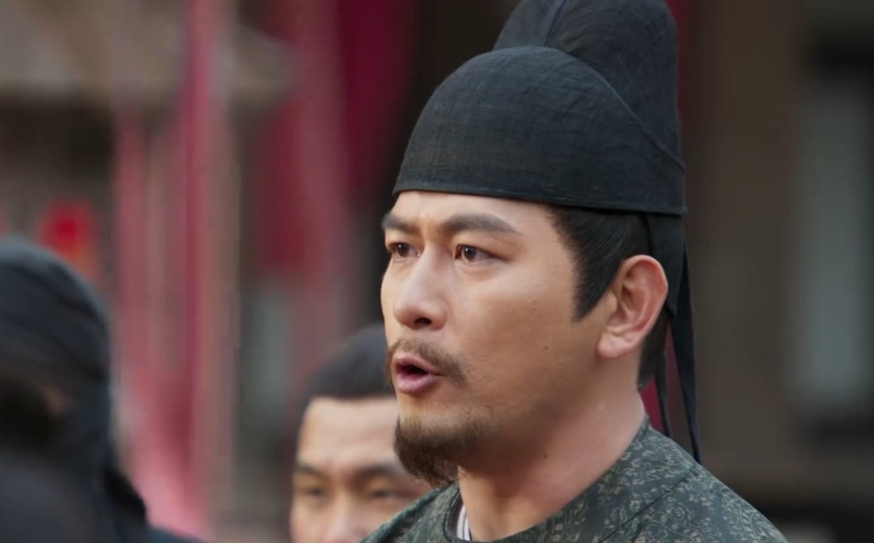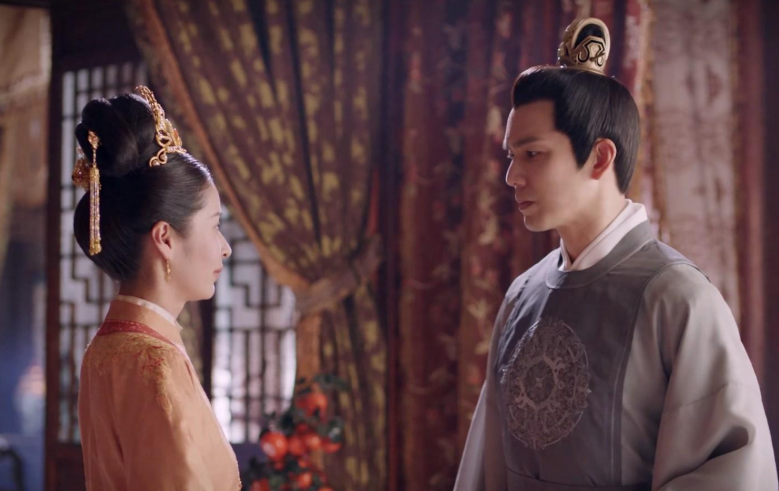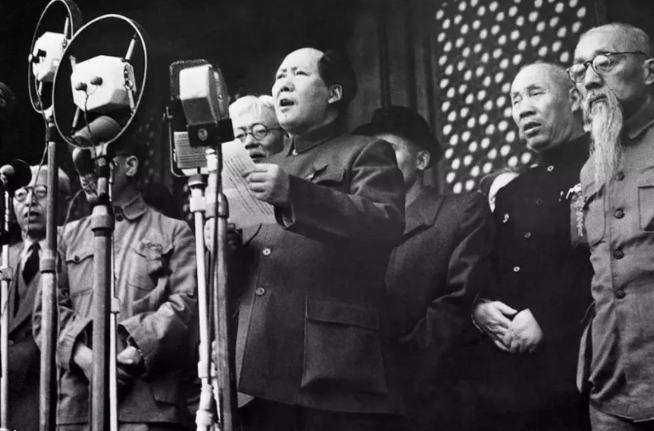They say ancient Chinese dreamed of being enfeoffed as a marquis. But once it happened, reality was better than any dream. Imagine this: no need to work, automatic income, social status, protection, and a system to pass it all to your heirs. You’re not just living large—you’re practically a god. Sounds too good to be true? Let’s uncover the reality.
How Much Was a Marquis Title Worth?
Let’s start with a name: Guan Ying. He fought battles, earned merits, and was enfeoffed as the Marquis of Yingyin by Liu Bang. This wasn’t an official post—it was a noble title. Guan Ying didn’t need to attend court or inspect regions. He just sat in his fief, collecting taxes from thousands of households.

In the Han Dynasty, a “Marquis of Ten Thousand Households” meant 10,000 families paid taxes directly to you. How? Each household contributed two hu (a measure) of rice or equivalent copper coins annually, totaling 20,000 hu. In Tang Dynasty prices, one hu of rice was worth hundreds of wen (coins), so 20,000 hu equaled millions of wen. In today’s terms, that’s a seven-figure income in RMB.
And that’s just grain. Your fief produced timber, salt, or other goods? Those profits were yours too. You were essentially running an early version of a passive income empire.
Then there was land. Some marquises didn’t collect grain directly but received land—say, 100,000 mu (about 16,500 acres). Tenant farmers worked it, and you collected rent without lifting a finger.
Here’s the kicker: this income wasn’t your official salary. If you also held an official post, like a third-rank minister, you’d get both the court salary and the fief’s taxes. Two paychecks, no conflict.
In modern terms, being a marquis combined social status, salary, and investments. It’s like being a civil servant with a tax-free real estate portfolio, steady profits, and the ability to pass it to your kids.
How long could it last? Generations. As long as your heirs didn’t mess up, the emperor’s decree kept the title—and income—flowing.

Win a battle, and your family could be set for three generations. Sounds wild, but history proves it wasn’t rare.
How Extravagant Was a Marquis’s Lifestyle?
TV dramas show marquises in silk robes, with red banners at their gates and grand entourages. Over-the-top? Not at all—it was understated.
When enfeoffed, you first received an imperial edict, a golden-lettered document on silk, personally approved by the emperor and delivered to your home. Then came the perks: official seals, lavish clothing, chariots, horses, and mansions. These were the emperor’s way of saying, “You’ve made it.”
Clothing wasn’t ordinary. Commoners wore hemp or cotton in limited colors. Marquises? They rocked multicolored embroidered robes with gold and silver threads, feathered hats, fox-fur cloaks, and custom boots. On the street, people stepped aside—not out of fear, but respect.
Dining was next-level. Marquises were invited to palace banquets during festivals or court ceremonies, feasting on wine, soups, roasted venison, and bird’s nest delicacies. At home, you had at least five chefs and a menu with ten dishes. Grain, salt, oil, and sauces? Delivered to your door.
Travel was a spectacle. No donkey carts for you—think five-horse chariots with honor guards, horns, and escorts. A “clear-the-way” sign went ahead, forcing pedestrians to step aside. Lower-ranking officials? They had to dismount and greet you. In ancient China, “courtesy didn’t extend to commoners,” but you weren’t common—you were a marquis.
Marriage? Marquises could wed imperial princesses or noble daughters. Families clamored to marry their daughters to your house for the prestige. Your sons? They had suitors lining up, not for looks, but for the title.
Your kids got educational perks too. Through “hereditary privilege,” they had priority admission to imperial academies or civil service exams. Even if their essays were terrible, teachers would politely praise their “brilliant minds.”
Even in death, the perks continued. The state funded your funeral, complete with a grand tomb inscribed with “Enfeoffed Marquis So-and-So.” Tomb guards were assigned, and your family’s name was etched into official histories, preserved for centuries.
In short: alive, you were elite; dead, you were legendary.

The Hidden Pitfalls of Being a Marquis
Sounds like a dream, right? But many marquises stumbled before they could bask in glory.
Take the fief income. It seemed stable, but it wasn’t foolproof. Imagine being enfeoffed with 500 households, only to face a drought. No crops, no taxes. The court didn’t send subsidies, so you’d dip into your savings to keep the mansion running, sometimes even struggling to pay servants.
Then there was hereditary succession. Titles could pass down, but only if your heirs “proved worthy.” In the Song Dynasty, if your son was a lazy freeloader, the court could demote or strip the title. Many families lost their marquis status by the third generation.
Dynastic changes were the biggest risk. When the Ming Dynasty fell, marquises lost their titles and lands under the Qing. Some fought and were executed; others were exiled. The glory of enfeoffment could vanish overnight.
Worse, some marquises drew imperial suspicion. Han Dynasty’s Han Xin, enfeoffed as King of Chu, was too successful. Fearing rebellion, Liu Bang demoted him, and later, Empress Lü had him executed in a prison cart. The emperor gave the title—and could take it, and your life, away.
Family drama was another issue. Enfeoffment expanded clan power, sparking inheritance disputes. Siblings fought over fiefs or titles, sometimes dragging disputes to court. Rivals and jealous courtiers filed complaints, turning your poetry soirées into political traps.
Being a marquis was a long-term game. You had to balance profits, manage risks, and navigate court intrigue. Enfeoffment was thrilling, but not a guaranteed win.
Real Marquis Stories: Better Than Fiction
Let’s ditch the theory and look at real people who became marquises—and how they fared.
Xiao He, Liu Bang’s logistics and governance genius, was mocked by Xiang Yu as a mere “city guard.” Yet after the war, Liu Bang enfeoffed him as Marquis of Zan, ranking him above all other vassals. Xiao stayed humble, managing supplies, building palaces, and registering households. His son, Xiao Lu, inherited the title, and the family thrived for four generations. Low-key but untouchable.
Li Jing of the Tang Dynasty crushed the Turks and Tuyuhun, earning the title Duke of Wei. He got mansions, chariots, and a pension, advising Emperor Taizong even in retirement. Historians called him “high in merit, unblemished in virtue.” His family, even without official posts, lived richly off fiefs for three generations.
Han Xin, the military prodigy, became King of Chu faster than anyone in the Han Dynasty. But his brilliance made him a target. Liu Bang, fearing a coup, demoted him and later had him imprisoned. Within two years, Empress Lü executed him publicly—no body left intact. He’s the poster child for “don’t outshine the boss.”

Yue Fei, Song Dynasty’s anti-Jin hero, was slated to become Junior Guardian and Prince of E. But before the edict arrived, Qin Hui’s fabricated “treason” charge landed him in prison, where he was unjustly killed. The Song’s pro-civilian, anti-military bias showed the brutal reality of power struggles.
In the late Ming, generals like Li Chengliang, Yuan Chonghuan, and Sun Chengzong were enfeoffed as marquises. But they faced a crumbling regime, rife with paranoia and factionalism. Yuan, enfeoffed as Marquis of Liaodong, was executed for “treason” a year later. For some, enfeoffment was a death sentence.
Conclusion: Would You Dare to Be a Marquis Today?
Enfeoffment wasn’t just a title or a prize—it was a system. It offered wealth, status, and legacy, but came with risks: droughts, dynastic falls, imperial jealousy, and family feuds. Win, and your descendants lived like kings; lose, and your title—and life—could end in a trap.
If you could be enfeoffed today, would you take the risk? And if you did, would you dare laugh out loud?
References:
- Sima Qian, Records of the Grand Historian (Han Dynasty)
- Fan Ye, Book of the Later Han
- Ouyang Xiu, New History of the Tang Dynasty
- Historical records on Song and Ming enfeoffment systems



